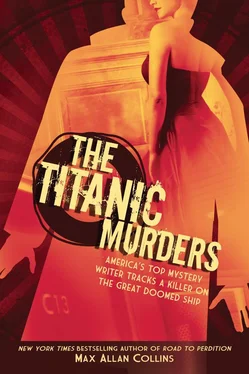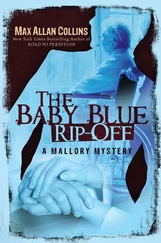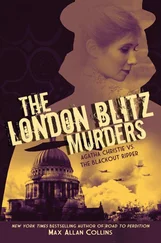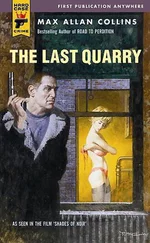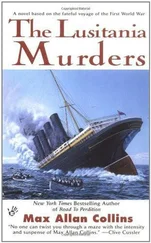Max Collins - The Titanic Murders
Здесь есть возможность читать онлайн «Max Collins - The Titanic Murders» весь текст электронной книги совершенно бесплатно (целиком полную версию без сокращений). В некоторых случаях можно слушать аудио, скачать через торрент в формате fb2 и присутствует краткое содержание. Жанр: Исторический детектив, на английском языке. Описание произведения, (предисловие) а так же отзывы посетителей доступны на портале библиотеки ЛибКат.
- Название:The Titanic Murders
- Автор:
- Жанр:
- Год:неизвестен
- ISBN:нет данных
- Рейтинг книги:5 / 5. Голосов: 1
-
Избранное:Добавить в избранное
- Отзывы:
-
Ваша оценка:
- 100
- 1
- 2
- 3
- 4
- 5
The Titanic Murders: краткое содержание, описание и аннотация
Предлагаем к чтению аннотацию, описание, краткое содержание или предисловие (зависит от того, что написал сам автор книги «The Titanic Murders»). Если вы не нашли необходимую информацию о книге — напишите в комментариях, мы постараемся отыскать её.
The Titanic Murders — читать онлайн бесплатно полную книгу (весь текст) целиком
Ниже представлен текст книги, разбитый по страницам. Система сохранения места последней прочитанной страницы, позволяет с удобством читать онлайн бесплатно книгу «The Titanic Murders», без необходимости каждый раз заново искать на чём Вы остановились. Поставьте закладку, и сможете в любой момент перейти на страницу, на которой закончили чтение.
Интервал:
Закладка:
“One other thing…”
“Sir?”
Futrelle pitched his Fatima into the sea; it arched and spit sparks, like a tiny flare. “I’m going back into the Smoking Room. I’ll have a brandy.”
So, nestled into a comfortable armchair, Futrelle sat and smoked a Havana cigar Archie Butt offered him, and sucked the rich smoke into his lungs, and enjoyed the snifter of brandy the attentive young steward brought him. He had nearly nodded off when something jarred him awake-an unexpected jostle that was the first sign since he’d boarded that he was on a ship, not in a hotel. The muffled sound of agitated voices, like distant cannon fire, drifted in from outside.
Wondering idly what that had been, Futrelle rose, stretched, took one last sip of brandy, crushed out the remainder of his cigar in a White Star ashtray. Perhaps he’d go out on the cold deck, before going back to his warm wife in their warm bed, and see what the fuss was about.
He certainly couldn’t have felt more at ease, or frankly more self-satisfied. A pair of damned blackmailers were dead, a mystery or two solved; the young lovers responsible would likely meet a merciful fate at the hands of Captain Smith. All was right with the world, the little city on the big ship safe once again, with naught but the promise of calm seas and smooth sailing ahead.
EPILOGUE
My anonymous phone caller never contacted me again, and my attempts to contact the various official expeditions to the Titanic ’s wreckage on the ocean’s floor, two and a half miles under the Grand Banks, have been fruitless. My letters about murders on the ship, and the possible existence (and discovery) of two canvas-body-bagged corpses in the cold cargo hold, apparently have been viewed much as I originally did my midnight caller: the work of a crank. (My phone calls have resulted in hang-ups, bum’s rushes and being put on hold until a dial tone clicks back in.)
Of course, I have no way of contacting any unofficial expedition-doubtful as the existence of such an effort might be, considering the shortage of deep-diving submersibles like Robert Ballard’s Alvin and IFREMER’s Nautile -and confirming my caller’s story now seems unlikely or even hopeless.
Researching the story told me by May and Jack Futrelle’s daughter, Virginia, that April afternoon in Scituate, has been considerably more successful, as the narrative you’ve just concluded I hope indicates. Virtually everything Mrs. Raymond told me about the murders fit neatly into known history, and answered a number of questions that have baffled researchers (why Captain Smith canceled the Sunday lifeboat drill, for instance, and the seemingly needless rush to port).
Unfortunately, I had only that one long afternoon’s meeting with Mrs. Raymond, who passed away later that same year.
What we do know is: who survived, and who did not, and-despite the tumult of that terrible night-we have at least some idea of the circumstances surrounding those who lost their lives so tragically and, almost invariably, heroically.
For the record, at approximately 11:40 P.M., the Titanic -at a speed approaching twenty-three knots-side-swiped an iceberg, despite the ship’s captain and crew having received numerous warnings of ice in the area. With too few lifeboats aboard and a slowly dawning realization by crew and passengers of the extent of the damage to the ship, a disaster worsened into tragedy. By 2:20 A.M., the Titanic was gone, taking many of her passengers and crew with her, putting more than fifteen hundred people either in or under the icy waters.
Archie Butt and Frank Millet, with several other passengers, aided in the loading of women and children onto lifeboats; when all of the lifeboats had been dispatched, the gentlemen returned to their card game in the Smoking Room until the slant of the table no longer allowed. Stories of Major Butt on deck fighting off swarthy steerage “rabble” with a walking stick or even a firearm appear to be one of the many yellow-journalistic inventions that pervaded early coverage of the disaster.
Archie Butt was last seen standing solemnly to one side on the boat deck, stoically awaiting his fate like the good soldier he was. He was apparently in the company of his friend Francis Millet; both men died in the sinking, Millet’s body recovered by the crew of the MacKay Bennett, whose grim task it was to salvage as many Titanic corpses as possible from the icy Atlantic.
Captain Smith’s fate remains clouded, as do conflicting reports of his demeanor on deck. The press of the day made him out a hero, but considering the source, the reports that he fell into a dazed, near-catatonic state are more credible; still, witnesses recalled seeing him with a megaphone, directing lifeboats to return to pick up more passengers (an order ignored). One story has him committing suicide with a pistol, but more credible is the eyewitness account of a steward who saw his captain walk onto the bridge, shortly before the forward superstructure went under, presumably to be washed away-a suicide of sorts, at that.
Another crew member reported seeing Captain Smith in the freezing water, holding a baby in his arms, moments before his ship made her final slide into the sea. Legend has it that the captain swam to a lifeboat, handed the child over, and swam off to go down after, if not with, his ship. The last reliable reports of Smith have him, in the water, cheering the attempts of crew members to struggle onto the top of an overturned lifeboat, calling, “Good lads! Good lads!” An oar offered to Smith was out of the captain’s reach, as a swell carried him away.
Some of the most famous stories of that night-the ones sounding most like legend-are true.
Isidor Straus, offered a seat on lifeboat number eight in consideration of his age, refused to go when other, younger men were staying; and Ida Straus refused to leave her husband’s side.
“I will not be separated from my husband,” she said. “As we have lived, so will we die together.”
And they did; in one final indignity, however, the ocean took Mrs. Straus’s body, while her husband’s was recovered, to be buried in Beth-El Cemetery, Brooklyn. Forty thousand attended the memorial service for the couple, with a eulogy read by Andrew Carnegie.
Benjamin Guggenheim, at first protesting the discomfort of a life belt, later abandoned it for his finest evening wear. With his valet, he awaited death in style, announcing, “We’ve dressed up in our best and are prepared to go down like gentlemen.” Oddly, his final thoughts-or at least his final thoughts of how he might like to be remembered-had to do with his long-suffering wife, writing the following note: If anything should happen to me, tell my wife I’ve done my best in doing my duty.
This may have been small solace to Mrs. Guggenheim, after Madame Aubert-rescued with the others in lifeboats by the ship Carpathia -came ashore announced as “Mrs. Benjamin Guggenheim.” As a further indignity, Guggenheim’s business affairs were in disorder, his steampump company doing poorly at the time of his death, leaving his children to make do with trust funds of only half a million or so, each.
Thomas Andrews, one of the first to understand that his ship was doomed, circulated through the Titanic dispensing various stories to various passengers, depending on how well he felt they might bear up under the truth. He worked manfully to see to it that as many women and children as possible were gotten into the lifeboats; but despair, finally, overtook him.
Andrews was last seen in the Smoking Room, staring at a serene nautical painting, his life belt nearby, flung carelessly across a green-topped table. His arms were folded, his shoulders slumped. When a steward, moving quickly through the room, asked him, “Aren’t you even going to have a try for it, Mr. Andrews?”, the shipbuilder did not even acknowledge the question.
Читать дальшеИнтервал:
Закладка:
Похожие книги на «The Titanic Murders»
Представляем Вашему вниманию похожие книги на «The Titanic Murders» списком для выбора. Мы отобрали схожую по названию и смыслу литературу в надежде предоставить читателям больше вариантов отыскать новые, интересные, ещё непрочитанные произведения.
Обсуждение, отзывы о книге «The Titanic Murders» и просто собственные мнения читателей. Оставьте ваши комментарии, напишите, что Вы думаете о произведении, его смысле или главных героях. Укажите что конкретно понравилось, а что нет, и почему Вы так считаете.
